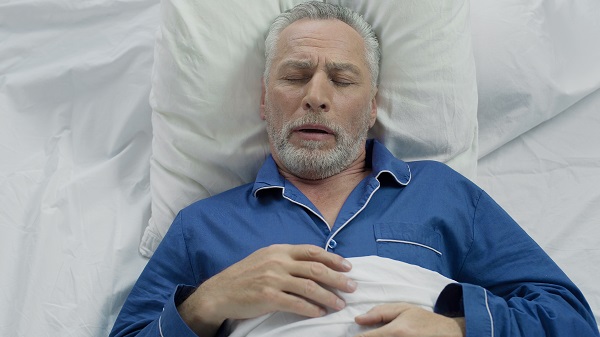Can a General Dentist Help With Treating Sleep Apnea?

A general dentist has the skills and experience to treat mild to moderate cases of sleep apnea. To treat this condition, the dentist may recommend custom-made oral appliances. It is crucial to learn about the condition to get a full grasp of how a general dentist treats sleep apnea. This article addresses this, as well as the treatment option available to patients.
Overview of sleep apnea
If someone has sleep apnea, they will stop breathing for a few seconds while sleeping. In the case of obstructive sleep apnea, a breath stoppage occurs when the air passages get blocked due to the excess tissues and relaxation of throat muscles. When breathing stops, the brain will send signals to wake the person so breathing can resume. This event may occur several times during sleep, causing the patient to wake up the next morning feeling tired.
Sleep apnea reduces the quality and quantity of oxygen delivered to the brain and may contribute to health conditions such as cardiovascular issues and depression. Symptoms of sleep apnea include snoring, daytime drowsiness, headaches and gasping for air during the night. Patients experiencing these symptoms need to visit the general dentist for diagnosis and treatment.
How a dentist can treat sleep apnea
General dentists have the training and expertise to treat the origin of obstructive sleep apnea. They can perform necessary evaluations to determine the appropriate treatment for the patient. Oral appliances are effective for keeping the airway open during the night for patients who cannot or do not wish to get a continuous positive airway pressure (CPAP) machine.
The oral device can help patients sleep better at night and reduce the risks of health problems. The device looks similar to a regular mouthguard. For effectiveness, the dentist will take impressions of the patient’s mouth to make a custom-fitted device.
The most popular type of oral appliances used for treating sleep apnea is the mandibular advancement device (MAD). The appliance works by shifting the lower jaw forward and prevents it from falling back into the air passages and blocking airflow. It snaps over the lower and upper parts of the jaw and is connected with metal hinges. Certain forms of these devices allow the wearer to adjust how far the lower jaw moves.
Another type of appliance is the tongue-retaining device. It functions by holding the tongue in a forward position during the night. This is a practical option for patients whose tongues tend to collapse to the back of the mouth while sleeping.
Oral appliances can help limit the occurrence of snoring in patients. Over the long term of consistent usage, oral appliances can effectively stop the apnea.
In conclusion
Sleep apnea is a serious health issue that can predispose you to the risks of other health issues. It is vital to undergo treatment for this condition so you can sleep better at night, rest well and improve your overall health. The general dentist can help you get the best treatment for your condition.
Request an appointment here: https://dragonflydentalportcharlotte.com or call Dragonfly Dental of Port Charlotte at (941) 676-9225 for an appointment in our Port Charlotte office.
Check out what others are saying about our services on Google: Read our Google reviews.
Related Posts
Cavities can happen to anyone, but there are ways to restore your teeth without sacrificing your appearance. Tooth colored fillings allow patients to receive the necessary repairs without the use of unattractive metals. Many cosmetic dentists now use this approach for most patients, allowing them to restore tooth form and function while maintaining the smile's…
In the past, unsightly metal fillings were used to treat cavities. Today, more patients prefer composite fillings, which serve the same purpose but with more natural-looking results. Dental fillings are relatively straightforward and do not require too much aftercare. However, there are ways to help reduce discomfort, prevent damage and prolong the life of composite…
Most people will experience at least one dental cavity in their lifetime. Fortunately, tooth-colored fillings can be used to treat tooth decay with natural-looking results. The care required for fillings is minimal; most people forget about them after a few weeks. However, choosing healthy lifestyle habits can help keep tooth-colored fillings in excellent shape, allowing…
Fillings are the most common treatment used for cavities. Composite fillings are a type of filling that may also sometimes be used for treating broken, cracked, or worn teeth.Filling a tooth is a multi-step process:1. The dentist numbs the area around the tooth with a local anesthetic.2. The dentist uses an air abrasion instrument, drill,…
